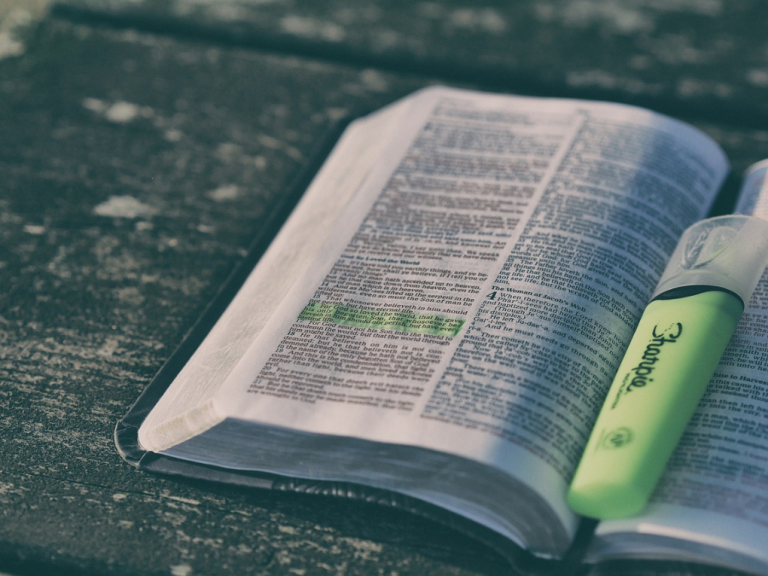Peace That Lasts Forever
1 This is the message I was given about Judah and Jerusalem:
2 In the future, the mountain
with the Lord's temple
will be the highest of all.
It will reach above the hills;
every nation will rush to it.
3 Many people will come and say,
“Let's go to the mountain
of the Lord God of Jacob
and worship in his temple.”
The Lord will teach us his Law
from Jerusalem,
and we will obey him.
4 He will settle arguments
between nations.
They will pound their swords
and their spears
into rakes and shovels;
they will never make war
or attack one another.
5 People of Israel, let's live
by the light of the Lord.
Following Sinful Customs
6 Our Lord, you have deserted
your people, Israel,
because they follow customs
of nations from the east.
They worship Philistine gods
and are close friends
of foreigners.
7 They have endless treasures
of silver and gold;
they have countless horses
and war chariots.
8 Everywhere in the country
they worship the idols
they have made.
9 And so, all of them
will be ashamed and disgraced.
Don't forgive them!
A Day of Judgment
10 Every one of you,
go hide among the rocks
and in the ground,
because the Lord is fearsome,
marvelous, and glorious.
11 When the Lord comes,
everyone who is proud
will be made humble,
and the Lord alone
will be honored.
12 The Lord All-Powerful
has chosen a day
when those who are proud
and conceited
will be put down.
13 The tall and towering
cedars of Lebanon
will be destroyed.
So will the oak trees of Bashan,
14 all high mountains and hills,
15 every strong fortress,
16 all the seagoing ships,
and every beautiful boat.
17 When that day comes,
everyone who is proud
will be put down.
Only the Lord will be honored.
18 Idols will be gone for good.
19 You had better hide
in caves and holes—
the Lord will be fearsome,
marvelous, and glorious
when he comes to terrify
people on earth.
20 On that day everyone will throw
to the moles and bats
their idols of silver and gold
they made to worship.
21 The Lord will be fearsome,
marvelous, and glorious
when he comes to terrify
people on earth—
they will hide in caves
and in the hills.
22 Stop trusting the power
of humans.
They are all going to die,
so how can they help?
Hâhâ ra ǂkhîb
(Mixa 4:1-3)1 Nēs ge ǂhôas Elob ge Amosi ôab Jesajaba Judab tsî Jerusalems ǃaroma a māsa:
2 ǃGoaxaǁaeb ǃnâb ge
ǃKhūb ommi ǃhomma
nau ǃhomgu ǂamai nî ǃkhāǂoa;
tsî naugu hoaga xu nî mâǂoa.
Hoaraga ǃhaodi ge ǁîb xa nî ǂgaeǀkhīhe
3 tsîn ge ǁîdi khoena nî mî:
“Hā, î da ǃKhūb di ǃhommi ai ǂoa,
Jakob Elob di Tempeli ǃoa;
ǁîb daogab nî ǁkhāǁkhā da
tsî da ǁîb ǃgangu ǃnâ nî ǃgûse.
Sionsa xus ge ǁîb ǁgauǃnâdi ra hāsa
tsî ǃKhūb di mîde Jerusalemsa xu.”
4 ǁÎb ge ǃhaodi ǁaegu hâ ǂnoaguga ǀgoraǃgâ
tsî ǂgui ǁaedi khoen ǁhōga nî ǃgâiǃgâi.
ǁÎn ge gôagu âna ǃhūǃgao-ūdadi ǃnâ nî ǀkharaǀkhara,
tsî ǁîn ǂāga ǁaraǂao-ūgôagu ǃnâ.
Nau ǃhaos ge naus ǃoagu ǁkhawa gôaba ūkhâi tide
tsî tātsēs tsîna ǁkhawa ǃkhams ǃaroma ǂhomisen tide.
5 Jakob di surido, hā î da ǃKhūb ǂgaeǂgui ra ǃnâb ǃnâ ǃgû!
ǂNîǃaoxasib ge nî hîkākāhe
6 Amase, ǃKhūtse, sa ǁaesats ge ge ǃharaxū, Jakob di suriba. ǁÎn aiǂoas di ǃgaidī-aogu tsî ǀkhū-aogu Filisteǁîn digu din khami īn tsîn xa ǀoa hâ xui-ao. ǁÎn ge ǃhaokhoen di ǁnaetiga ra ūbasen. 7 ǁÎn ǃhūb ge ǀhaiǀurib tsî ǃhuniǀurib tsîkha xa ǀoa hâ; ǃkhūsib ân ge ǀam-e ūhâ tama hâ. ǁÎn ǃhūb ge hān xa ǀoa hâ; torokunidi ân ge ǀam-e ūhâ tama hâ. 8 ǁÎn ǃhūb ge ǁgôa-elogu xa ǀoa hâ; ǁÎn ǃomgu ǀkhan kuru hâ xūnan ge ra ǀgoreǀî, ǁîn ǀkhunugu ǀkhan ge kuru xūna.
9 ǁNā-amaga khoen ga ǃgamǃgamhe tsî ǃhūb kōse ǁgôaxa-ūhe, xawe ǃKhūtse ǁîna tā ǀûba!
10 ǁÎn ge ǃgareǀuigu ǃnâ hâ ǁhoagu ǃnâ ǂgâ tamas ka io ǃhūb ǃnâ ǂnôa ādi ǃnâ ǃKhūb di ǁaib tsî ǂkhaisib ǁîb ǁkhāsib diba xu nî gaubēse. 11 ǀGapiǂâixa khoen ge nî ǃgamǃgamhe; ǀgapiǀgapisen ran ǃhūb kōse nî ǁgôaxa-ūhe tsîb ge ǁnā tsēs ai ǃKhūb ǀguiba nî ǀgapiǀgapihe. 12 Amase, ǁnā tsēs aib ge ǃKhūb Hoaǀgaixaba ǀgapiǂâixa tsî ǂnīsa khoen, ǁnān ǀgapiǀgapisen ran ǃoagu khâi tsî ǁîna nî ǃgamǃgam. 13 ǁÎb ge Libanonni ǀgapi tsî ǀgaisa sederhaidi khami tsî Basanni aikehaidi khami ǂora mâ khoen hoana nî hîkākā. 14 ǁNān ǀgapi ǃhomgu tsî ǃnâugu khami ǂora mâ khoen hoan tsîna. 15 Mâ ǀgapi ǂgō-ommi tsî mâ ǀgaisa ǂnubiǂgoab khami ī khoe-i hoa-eb ge nî hîkākā. 16 Ā, ǁnān ǁîdi a kai doe-omdi tsî ǁîdi a îsa ǂgaudi khami īn hoan ǃoagub ge ǁîba nî khâimâ. 17 ǀGapiǂâixa khoeb ge nî ǃgamǃgamhe; karokarosenxa khoeb ge ǃhūb kōse nî ǁgôaxa-ūhe tsîb ge ǁnā tsēs ai ǃKhūb ǀguiba nî ǀgapiǀgapihe. 18 ǁGôa-elogu hoagu ge nî hîkākāhe.
19 ǁÎn ge ǃgareǀuigu ǃnâ hâ ǁhoagu ǃnâ ǂgâ tamas ka io ǃhūb ǃnâ ǂnôa ādi ǃnâ ǃKhūb di ǁaib tsî ǂkhaisib ǁîb ǁkhāsib diba xu nî gaubē, ǃhūbaibab nî ǂgubi kaiseb ga hāo. 20 ǁNā tsēs ain ge khoena, ǁîn ge aitsama ǀgoreǀîn nîse kurubasen ǀhaiǀuri tsî ǃhuniǀuri ǁgôa-eloga surutsiǃguben tsî tsuxudurun tsîna nî aoxūba. 21 ǁÎn ge ǃgareǀuigu ǃnâ hâ ǁhoagu tsî ǃgareǀuigu ǃnaka ǂnôa ādi ǃnâ nî ǂgâ, ǃKhūb di ǁaib tsî ǂkhaisib ǁîb ǁkhāsib diba xu ǃkhoenis ǃaroma, ǃhūbaibab nî ǂgubi kaiseb ga hāo. 22 Tā ǂgui-ādi ǃnâ ra ǀom khoena ǂgomǃgâ. Tare-en ǁîna harebe hâ?


